Celebrated doyen of India’s HR fraternity, Dr Aquil Busrai, who has led HR in blue-chip companies across diverse industries, geographies and cultures says HR has come full circle, and believes it is time we re-focus on the H factor in HR
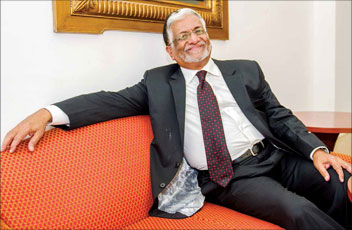
Dr Aquil Busrai is a most honourable leader of the HR community. A genuine and simple person, he has led the HR teams of top blue-chip companies like Unilever in India and Kenya (1979-94), Motorola (1994-2002), Shell Malaysia (2002-06) and IBM Corporation (2006-10) for over four decades. This big daddy of HR is currently coaching and mentoring senior leaders, HR teams and working as People Managers at his own firm, Aquil Busrai Consulting, Gurugram.
Admired for his roles in designing and implementing Leadership Management, Performance Management and Change Management processes, Dr Busrai has lived in Kenya and Malaysia and worked in 15 Asia Pacific countries.
An acknowledged expert on both operational and strategic HR for start ups, acquisitions, mergers and re-structuring, Dr Busrai is an insightful commentator on how top Indian companies and MNCs in India have handled their business and HR issues and shown extraordinary performance consistently over the years. A motivational speaker at top management schools and HR conclaves of major industry forums including CII, ASSOCHAM, FICCI, NHRDN and AIMA, Busrai loves to talk about values, culture, managerial practices and leadership challenges.
He has won many awards. Some such include the “Pathfinder Award” by National HRD Network, “Most Powerful HR Professional Award” at the Asia-Pacific HRM Summit in Singapore and “Lifetime Achievement Award” at Top Rankers Meet in Kuala Lumpur (Malaysia) and Distinguished Alumnus Award from his Alma Mater XLRI.
But that’s not all. He’s a “serious” wild-life photographer, a social activist and a keen student of non-verbal corporate communication too. Dr Busrai recently shared with Corporate Citizen the important landmarks of his career. Excerpts:
If you really want to succeed, understand the business and its nuances. Also understand the company’s brands, go-to-market system, the levers of growth and the financials it works with.
'The biggest challenge before HR today? is to bring the H (or the human element) back into HR operations. Technology can never be a match for the H element. You can’t digitise and commoditise the human element’
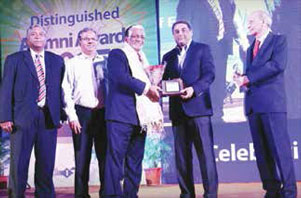
A tectonic shift happened over the last five decades. HR is the only profession where we have different labels for different decades. In the 1960s, the key word was welfare. In the 1970s, handling Industrial Relations and Labour Unrest was primary job of HR. In 1980s, Change Management was the buzz word. But since the 90s, people say we must become Business Partners. In HR, we’ve actually done a self-fulfilling prophecy of defining this is what is expected of you. As a result, Industrial Relations (IR) has now become obsolete-a low-end priority, especially among younger people joining the profession.
When you ask the youngsters what they want to do as HR, the reply is OD. You ask what OD is and they say, ‘Oh, you don’t know OD” Its Organisational Development,’ as if asking, “Which Jurassic Park are you coming from?” Ask them, how about a stint in IR and they smilingly say, “Sir, in our times, we don’t do that” as if we’re idiots who spent years in IR (smiles). My first gherao happened when I was twenty-three and a half in Kolkata, and I learnt employee relations, labour relations, HR development and even OD because of IR. But having lost the focus, IR is not seen as the attractive part of HR any longer.
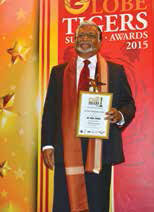
Neither have tensions due to IR disappeared, nor has labour unrest vanished. Economic disparities have widened. Though with the advent of technology, many transactions have been automated and paper work of HR has been replaced by webbased facilities, the human need for interface has not diminished. We’re forgetting is that industrial unrest is simmering in India. There is lack of communication between employees and management, but nobody is trying to understand. We need is to refocus our attention on engagement, which is the hallmark of IR.
I disagree, because it is a misconception that unionisation happens only with blue-collar workers. We’re ignoring the likelihood of white-collar unions. It’s true that unions are not formed by well-educated people, but today unionism is happening on the web. They’re not going for conventional things like agitations and gheraos. They’re making their presence felt on digital platforms like WhatsApp and Facebook.
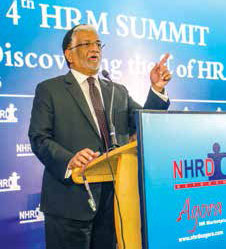
No. I’m not. I’m all for gadgets and tech-savvy approach, but tell me who is listening to employees? We’re just not listening to them. For everything, we go to the net. I remember four decades back, when a worker would walk into my office in the then Personnel Department of the Dalda factory in Kolkata asking for a form to apply for leave. The last thing he wanted was that form. He would come to seek a human interface which could give him an opportunity to ‘relate his real’ reason for walking into my office. I knew it so I’d ask him to sit down and encourage him to talk. I’d listen and he’d go back without taking the leave form.
Today, we’re missing out on engaging and listening to people because we’re becoming either too smart or too tech-savvy. We feel as long as we pay them well, give them recognition, rewards and promotions, nothing will happen. But this area needs to be brought back to life as employee engagement is ending with increasing use of technology. It’s a business imperative.
It is to bring the H (or the human element) back into HR operations. Technology can never be a match for the H element. You can’t digitise and commoditise the human element.
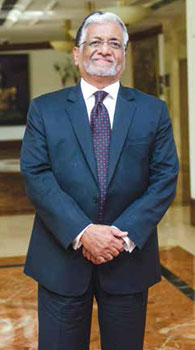
My basic interest in human relations made me give up an IIM Calcutta admission in Marketing and go for HR. I enjoy dealing with people's issues. So when I first faced a gherao, it was a good experience. I was a bachha at that time, but when you're genuine in your work, people take you seriously. There are many instances of union leaders becoming my teachers and protecting me. I worked in Blue Star for seven years and then in Unilever (Hindustan Lever in those days) for half my life, where I worked in factories in Garden Reach area near Kolkata, then at the Dalda factory in Shyamnagar, followed by a remote milk-processing factory in Etah (UP) and finally at the head-office where I was Head of recruitment and job evaluation. I held 11 charges in Unilever before going to Kenya on an overseas assignment and spent about six years there.
In 1994, the American electronics giant was set-ting up an operational unit in India. It was the first time that Telecom was coming to India and Motorola was not known in the Indian market. It was a completely technology-driven company and I had only FMCG background, but I took a calculated risk, which proved to be good. I was made to look after the entire South Asia- Sri Lanka, India, Pakistan and Bangladesh-and within a year, they made me HR Head for the software division of the entire Asia-Pacific. So, besides ASEAN nations, I looked after the HR operations of 17 countries including Japan, Korea, China, New Zealand, Australia, Pakistan, Sri Lanka, Bangladesh and, of course, India.
Then, in 2002, Shell Malaysia offered me two jobs. One was as head of HR for Malaysia and the other was as MD of a company they wanted to set up within Shell Services Companies. That was an unusual opportunity to manage the balance sheet of a company. I picked it up and moved to Kuala Lumpur for the next five years (2002-06). I set up the company and worked as its HR Director. Then my mother’s health started deteriorating, so I moved back to India in 2006 to join IBM Corporation as its Executive Director HR.
‘Neither have tensions due to IR disappeared, nor has labour unrest vanished. Economic disparities have widened. Though with the advent of technology, many transactions have been automated and routine paper work of HR has been replaced by webbased facilities, the human need for interface has not diminished’
Two things helped me. One, I kept an open mind about culture because working and living in countries like Kenya, Malaysia, Singapore, the Netherlands, UK and other, the South-East Asia is quite fascinating. Each country has its own culture. I enjoyed it without passing any value judgement and took everything in my stride. For instance, Kenya was a very different culture with very exotic food. I enjoyed being with its people and that made me feel comfortable because this cultural fit is something we miss out.
From my own experience, I can say industry change doesn’t matter much. What matters is how connected you feel with the business. I changed many industries-from FMCG to Technology to Oil & Gas to IT. Each time it was a big shift, but my ability to connect with the business helped me. Rather than doing an isolated HR function, I tried to understand the viewpoint of those heading the business so that I would be able to do something that could make sense to them. Shell was an amazingly good company. So was IBM and Motorola. In each case, I tried to connect HR with business.
Oh yes. The very first challenge I faced was the culture of the parent company. For example, Unilever was an Anglo-Dutch company with a predominant European culture. The approach in Unilever was that everything must be thoroughly prepared before execution. So, every option would be considered, thorough preparations would be made, leaving nothing to chance before execution. That was a very strong culture and no wonder they were successful because of this. The culture in Motorola again was very challenging because it was purely American Midwest Texas culture of ‘even if you're half ready, go ahead. Don't worry. We'll change the thinking half way’. My boss got frustrated with me in the first three months because he was waiting for a proposal, which was ready, but I was not submitting. For four weeks, he waited, and then he said, “I've seen it. It's ready with you, just submit it.” I asked him, “Suppose this doesn't work, then what?” Pat came his reply, “We'll see it at that time.”
That was a cultural shift and I struggled to adapt to it without sacrificing my principles. Moving to Shell Malaysia was an entirely different experience-very traditional, old-time culture, very silent upstream, downstream, strong personalities, people working there for a lifetime. Why would they take a newcomer at this level? So, the cultural fit was to adapt with respect, but without succumbing to anything being said.
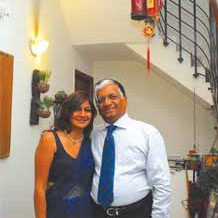
One was to go and voluntarily work in Unilever’s Etah factory in 1979. It was a turning point because had I not done that, I wouldn’t have got the richness of experience and the reputation. So when I would come to head office, seniors would ask, “Are you the same Busrai who did great jobs in a tough place like Etah?” In bigger locations your reputation never goes ahead of you but that happens at small locations because of the type of exposure you get there. That was a big turning point. The second was to have the courage to go and experiment with the business heads, to leave the comforts of HR and to say, “I want to work for the business needs of the company.”
I look at it this way: HR has not changed, the process of delivering HR has changed. That's why I say, the H in HR has changed and you have to keep H in focus. Earlier, we used to do appraisals on paper, now we do it online. But to have a dialogue, you still have to put the process in place and as HR Head, I insisted that my line managers spend time with the ranks and files. Even in IBM, a company with 52,800 employees, if I went to a town location, I’d speak to a focussed group of at least 16 people for 90 minutes. Now, 16 people are nothing, but if you do it all the time, they become equal to 1600 people. So, connecting with people, keeping yourself humble despite big things happening around you, is very important. If you get carried away with technology or machinery or brand name, you’re gone. Unilever, Motorola, IBM and Shell are big brand names, but I made sure that people came first.

Gender diversity is a misnomer. Many companies profess about their gender diversity. If you don't talk about them, you're outdated. I feel diversity is of three types. One is gender, one is of thought-can you bring people who think differently? We avoid the divergent views coming into the company. The third aspect is to respect that we're different but we have a common goal. So, if you take up a triangle and divide it into four equal parts, women are in the lowest part in any company. Very few in the second rung, hardly exist in the third and almost zero in the fourth.
Besides gender diversity, I looked for ethical values with the freedom to speak your mind and a clean working atmosphere with no room for sexual harassment. So, it was easy transition for me because all companies practised highest ethical values.
At IBM, where we were hiring 1500-1700 every month, I did two things. One was to look at the number of CVs received and the other how many were called for interview. When you ask the right questions about the data, results improve. Second was zero tolerance for unethical behaviour towards women. Once a very senior officer was involved with something not in line with the IBM's practices, we asked him to go, though there was a lot of pressure.
That depends on how much you are committed to ethics. Either you're ethically committed or you're not. I’ve sacked people in Motorola for just 400 rupees, though it cost us over a lakh. One bottle of Benedril medicine for cough was for RS. 40 then. He bought one bottle and changed 1 to 10 by hand and 40 to 400 in the invoice. Somebody in the accounts found that out. I sent a man to Pune to verify. In two days, we confirmed the facts and sacked that man. Integrity is also non-negotiable.

The relationship should be of a Mentor-Mentee. Tasks must be defined, delivery time-lines fixed and then if you don't deliver, you've got to go. But if you deliver, you must also get benefits.
It is painful, but if you’ve got to cut, you must cut. For that, you must have the mind of a surgeon and heart of a mother. I've done the separation of the job hundreds of times. Once, we separated 754 people in one go. But people have never said you did wrong because the process to identify who to separate was personally supervised by me. If I knowingly or unknowingly do any wrong, I should leave the chair. I don't see many movies but I saw Spider Man. When his father was dying, what he told Spider Man struck me. He said, “With great power comes greater responsibility.” When you're so powerful that your one signature can separate people or hire people, you must not use this casually.
It was most touching. We had to close down the whole factory and part with about 400 people in Motorola because pagers went down. We gave them extra benefits. We found them jobs. We gave them alternate training at the company's cost. We even gave bus coupons for three months for travel from home to the training centre. That year, I received six to seven New Year greeting cards from those very people.

After over four decades of HR experience, I realised lots of things were pending in life. I had not finished my PhD. So in 2010, I got myself enrolled for PhD at Udaipur University. Another pending thing was my passion for wildlife photography and writing. I decided to give time to both of them. My writing had gone. So I type-wrote a book. I always wanted to do some work for disadvantaged children. So, I’m trying in my own humble ways. But I was also scared to leave the comfort of the industry and so, seven years ago, I started my own consulting firm. I decided that I won't go into anything or everything—no recruitments or other such things. I wanted to do only executive coaching, HR strategy and leadership training and development. So, I certified myself as a coach. Now I do coaching for the senior and mid-level management high potency courses. It's giving tremendous results.
One of them is a big-four type of company. Then there are big consulting companies. One of them is the largest in the automobile industry, and one in publishing. The industry doesn't matter. Humans are common everywhere. This is a principle I have learned.
I find it amusing because I was as big a trouble- maker as anybody when I was young. I was a rebel. I wouldn’t listen. I’d challenge authority. Is my daughter different? No! She's exactly the same—short-tempered, short fused and challenging. So the millennials are not different. But it looks nice to talk about them in conferences. It makes people sound very intelligent and tell stories as to how difficult it was to deal with them.
I worked with IBM, which had millennials galore. I didn’t have any problem with age because the day you learn not to have ranks, it doesn't matter. When I joined IBM, I took my HR team to Rishikesh for river rafting. We stayed in tents and went for rock climbing. I was past my age for rock-climbing but I also climbed. When you do something, which they don't expect you to do, you become one of them. It bonded the team together. If you ask them, they’ll say, I’m very tough, demanding and uncompromising boss as far as work is concerned. But when my boss asked them whether they would like to work again with me, many said yes. Why? Because the learning they got was priceless.
Unlike others, I believe that if you really want a high-performing team, you have to give them enough freedom, empathy and respect for their individual dignity to seek their feedback. All it needs is the right intention, and that works. Earlier in Motorola also, I had the finest and very young people in my team. Our meetings used to be very chaotic, noisy, people disagreeing, getting annoyed and saying absolutely divergent things. But despite all the chaos, when the decision was taken, everybody would say this was my decision because they felt that their view was taken. So the policy document we took out was the finest piece of HR literature because it was both people sensitive and business sensitive too.
India has been looking at the cost arbitrage advantage but that is lost. We are not going to have the cost arbitrage any more. The cost of employees direct and indirect, has kept on increasing over the years.
Compensation rise has been very high over the last couple of years. Annual increase is in double digits. If you give 15% increase, you're actually doubling compensation every seven years. That means the base is very small but that's what gives us advantage. If you compare India's salary with those of Philippines and China, we're only a few percentages apart. So, we're losing on cost.
‘Live life passionately and with full enthusiasm because your success depends on your passion. You must be passionate about your work, love your work and work with love’
Reasons are many, but whatever cost advantage we’ve had will also disappear soon because of current compensation packages, rapidly shifting technology needs and return of protectionist tendencies in the post-Trump US talent market. India is no longer the world’s favourite destination for high quality, low-cost technology skilled people. Even the skill development is low. We're not getting skilled people. Though there is a lot of talk of skill development in the country, the end result is low. We're getting influenced by fancy five star culture in the IT sector. If we don't improve our skills fast, India may lose its position. We have a large number of people in the talent market, but not the right quality. So you have to spend that much time to train and spend on it.
Some are doing a good job. But there is a lot of room for improvement in their interaction with the industry. Industry-academics interaction is still pretty low in most of these B-schools .
They are very good. The filtration process takes care of quality. For example, I teach at IIM and they’re really good. Some concession has to be made for caste reservations but you have to live with this social issue.
They are reasonably well skilled but not as good as expected. I've done my PhD on this subject of industry-academia interface. I know how big the gap is. The good news is, even the products from the B and C category B-schools are fairly good.
I don't face any business challenges, but I've started a new initiative. I'm not a great fan of CSR. I don't believe CSR really works as it was intended to be. You cut the cheque mostly for some known NGOs. I've nothing against them but I've started my own initiative which I call ISR.
ISR means Individual Social Responsibility. In that, I've got some people rallied-up to work. My theory in just five words is: Don't Give Money, Give Self. Don't cut a cheque for me. We don't need money. I feel social responsibility cannot be forced. It has to come from within and there are enough people wanting to donate money for a good cause. I tell them that simply giving money will not help, you’ve got to take responsibility. I’m networking such people who want to help even otherwise and the response is tremendous.
We do crowd funding. Instead of contacting just a few individuals, we go to 250 and more people, collecting small amounts for good causes. We had first experimented ISR in Kolkata last year with the help of my cousin who manages six NGOs there. On 31st July, we took 296 children from slums, many of them kids of Kolkata’s sex-workers, to a Mall of Kolkata. Manyawar, which sells designer clothes and gave sherwanis to them. We also gave `500 to each of them to experience the joy of buying. We gave them simple food, ice-cream included, but what was most satisfying was that the children really enjoyed and remained disciplined. We gave due respect to their mothers who came to see them off.
I'm a very serious wild-life photographer. I go to Ranthambore Tiger Reserve Park in Rajasthan’s Sawai Madhopur five times a year. I do a minimum of seven safaris in a year. In March- April, I usually go to East Africa.
I think it is to live life passionately and with full enthusiasm because your success depends on your passion. You must be passionate about your work, love your work and work with love. If at this age, I can go to Ranthambore in May when it’s 47 degrees plus for my love for wild life, you can imagine who I am. Why would I do such a thing if I’m not passionate? So, that’s something that defines the philosophy of my life.
By Pradeep Mathur